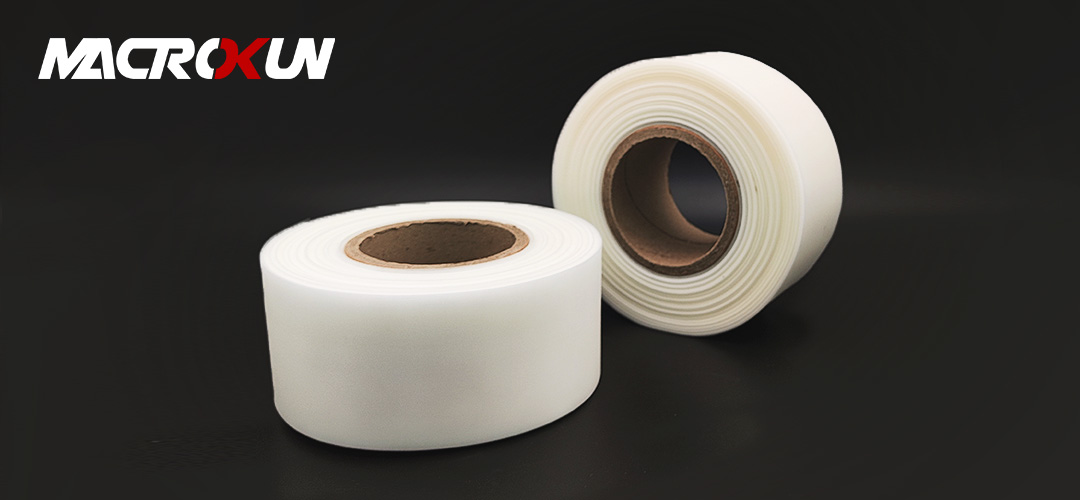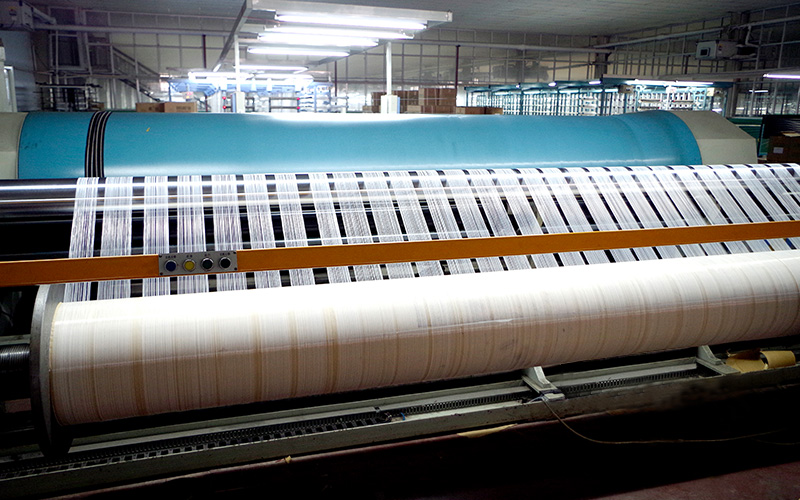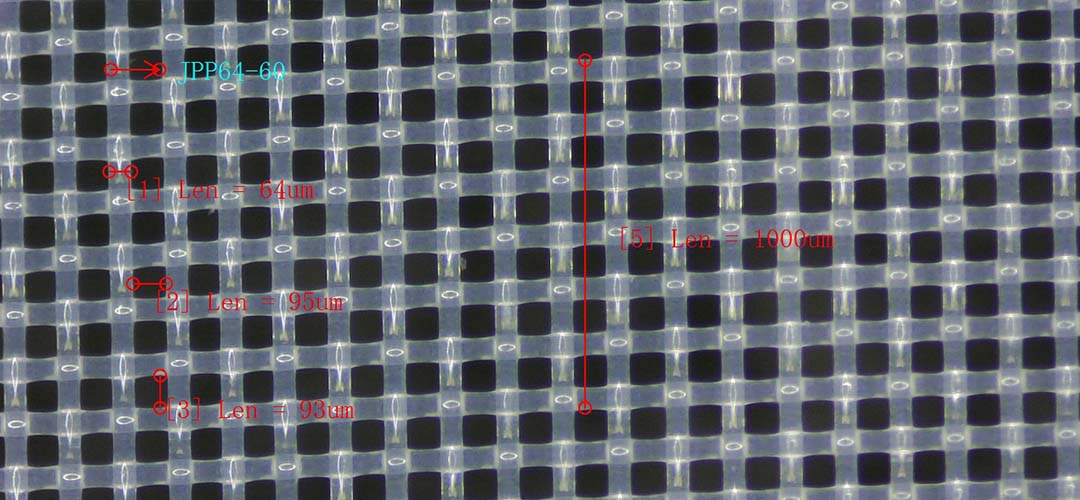When it comes to filtration needs, choosing the right material is crucial to ensure optimal performance and efficiency. Nylon mesh is a popular choice for many industries due to its durability, flexibility, and chemical resistance. In this article, we will discuss the key considerations to keep in mind when buying nylon mesh for filtration purposes.
One of the main benefits of using nylon mesh for filtration is its strength and durability. Nylon is a synthetic material that is known for its high tensile strength, making it ideal for applications where the mesh will be subjected to high pressure or tension. This strength also allows nylon mesh to maintain its shape and integrity over time, ensuring consistent filtration performance.

Another key advantage of nylon mesh is its flexibility. Nylon is a highly flexible material that can be easily molded and shaped to fit a variety of filtration needs. This flexibility allows for customization and versatility in filtration applications, making nylon mesh a versatile choice for a wide range of industries.
In addition to its strength and flexibility, nylon mesh is also chemically resistant. Nylon is resistant to many chemicals, acids, and solvents, making it suitable for use in harsh or corrosive environments. This chemical resistance ensures that nylon mesh will not degrade or break down when exposed to harsh substances, prolonging its lifespan and maintaining its filtration efficiency.

When buying nylon mesh for filtration, it is important to consider the mesh size and weave pattern. The mesh size refers to the size of the openings in the mesh, which determines the level of filtration and particle retention. The weave pattern refers to the arrangement of the threads in the mesh, which can affect the flow rate and efficiency of the filtration process.
It is also important to consider the micron rating of the nylon mesh. The micron rating indicates the size of particles that the mesh can effectively filter out. Choosing the right micron rating is essential to ensure that the nylon mesh can effectively remove contaminants and impurities from the fluid or gas being filtered.
Another key consideration when buying nylon mesh for filtration is the temperature and pressure rating. Nylon mesh is capable of withstanding a wide range of temperatures and pressures, but it is important to select a mesh that is suitable for the specific operating conditions of your filtration system. Choosing a nylon mesh with the appropriate temperature and pressure rating will ensure optimal performance and longevity.
In conclusion, nylon mesh is a versatile and durable material that is well-suited for a variety of filtration applications. When buying nylon mesh for filtration needs, it is important to consider factors such as strength, flexibility, chemical resistance, mesh size, weave pattern, micron rating, and temperature and pressure rating. By taking these key considerations into account, you can ensure that you select the right nylon mesh for your filtration requirements and achieve optimal performance and efficiency.
When it comes to choosing the right nylon mesh for your filtration needs, there are several key considerations that you should keep in mind. Nylon mesh is a popular choice for filtration applications due to its durability, flexibility, and chemical resistance. However, not all nylon meshes are created equal, and it’s important to select the right type of mesh for your specific requirements.
One of the first factors to consider when choosing nylon mesh for filtration is the mesh size. The mesh size refers to the number of openings per inch in the mesh material. The smaller the mesh size, the finer the filtration will be. If you are filtering out very small particles, you will need a mesh with a smaller size. On the other hand, if you are filtering out larger particles, a mesh with a larger size may be sufficient.
Another important consideration is the mesh weave. Nylon mesh can be woven in different patterns, such as plain weave, twill weave, or Dutch weave. Each weave pattern has its own unique characteristics and is suitable for different types of filtration applications. For example, plain weave nylon mesh is commonly used for general filtration purposes, while Dutch weave nylon mesh is ideal for applications that require high strength and durability.
In addition to mesh size and weave, it’s also important to consider the mesh opening size. The opening size refers to the size of the individual openings in the mesh material. The opening size will determine the flow rate of the filtration process. If you need a high flow rate, you will need a mesh with larger openings. Conversely, if you need a finer filtration, a mesh with smaller openings will be required.
Chemical compatibility is another crucial factor to consider when choosing nylon mesh for filtration. Nylon mesh is known for its chemical resistance, but it’s important to ensure that the mesh material is compatible with the specific chemicals that will be used in the filtration process. Some chemicals can degrade nylon mesh over time, so it’s essential to select a mesh material that can withstand exposure to these chemicals.
Durability and longevity are also important considerations when choosing nylon mesh for filtration. Nylon mesh is known for its strength and durability, but it’s important to select a mesh material that can withstand the rigors of the filtration process. Look for nylon mesh that is abrasion-resistant and can withstand high temperatures and pressures.
Finally, cost is a factor that should not be overlooked when choosing nylon mesh for filtration. While it’s important to select a high-quality mesh material that meets your filtration requirements, it’s also important to consider the cost of the mesh. Compare prices from different suppliers and consider the overall value that the mesh material will provide for your filtration needs.
In conclusion, there are several key considerations to keep in mind when choosing nylon mesh for filtration. Consider factors such as mesh size, weave, opening size, chemical compatibility, durability, and cost to ensure that you select the right mesh material for your specific filtration requirements. By taking these factors into account, you can ensure that you choose a high-quality nylon mesh that will provide effective and efficient filtration for your application.
Nylon mesh is a versatile material that is commonly used in a variety of filtration applications. From industrial processes to medical devices, nylon mesh offers a cost-effective and efficient solution for separating solids from liquids or gases. When purchasing nylon mesh for filtration needs, there are several key considerations to keep in mind to ensure that you select the right material for your specific application.
One of the most important factors to consider when buying nylon mesh for filtration is the mesh size. The mesh size refers to the number of openings per inch in the mesh material and determines the size of particles that can pass through the filter. For applications that require fine filtration, a mesh with a smaller size is necessary to capture smaller particles. Conversely, for applications that require coarse filtration, a mesh with a larger size may be more appropriate. It is essential to carefully consider the mesh size to ensure that the nylon mesh will effectively filter out the desired particles.
Another important consideration when purchasing nylon mesh for filtration is the material construction. Nylon mesh is available in a variety of different materials, each with its own unique properties and characteristics. For example, nylon mesh can be coated with a chemical-resistant material to withstand harsh chemicals or high temperatures. Additionally, some nylon mesh materials are designed to be antimicrobial, making them ideal for use in medical or food processing applications. It is crucial to select a nylon mesh material that is compatible with the specific requirements of your filtration application.
In addition to mesh size and material construction, it is also essential to consider the weave pattern of the nylon mesh. The weave pattern refers to the way in which the individual strands of nylon are interlaced to create the mesh material. Different weave patterns can affect the strength, flexibility, and filtration efficiency of the nylon mesh. For example, a plain weave pattern is simple and cost-effective but may not offer as much strength as a twill or satin weave pattern. By carefully considering the weave pattern of the nylon mesh, you can ensure that the material will meet the performance requirements of your filtration application.
When purchasing nylon mesh for filtration, it is also important to consider the overall durability and longevity of the material. Nylon mesh that is exposed to harsh chemicals, high temperatures, or abrasive particles may degrade over time, leading to reduced filtration efficiency and potential equipment failure. It is essential to select a high-quality nylon mesh material that is designed to withstand the specific conditions of your filtration application. Additionally, regular maintenance and cleaning of the nylon mesh can help prolong its lifespan and ensure optimal performance.

In conclusion, when buying nylon mesh for filtration needs, there are several key considerations to keep in mind. By carefully evaluating factors such as mesh size, material construction, weave pattern, and durability, you can select a nylon mesh material that will effectively filter out particles and meet the requirements of your specific application. With the right nylon mesh in place, you can ensure efficient and reliable filtration for your industrial, medical, or other filtration needs.
When it comes to filtration needs, nylon mesh is a popular choice due to its durability, flexibility, and resistance to chemicals. Whether you are in the food and beverage industry, pharmaceuticals, or any other field that requires filtration, choosing the right nylon mesh is crucial for optimal performance. There are several key considerations to keep in mind when buying nylon mesh for filtration needs.
One of the first things to consider is the mesh size. The mesh size refers to the number of openings per inch in the mesh. A smaller mesh size means smaller openings, which can capture finer particles. On the other hand, a larger mesh size allows for larger particles to pass through. The mesh size you choose will depend on the size of the particles you need to filter out. It is important to select a mesh size that is appropriate for your specific filtration requirements.
| Class | Mesh Count (/cm) |
Mesh Count (/inch) |
Thread Dia (um) |
Mesh Opening (um) |
Thickness (um) |
Weight (g/m2) |
| NL4/1950 | 4 | 10 | 550 | 1950 | 1100 | 307 |
| NL5/1500 | 5 | 13 | 500 | 1500 | 1000 | 318 |
| NL6/1267 | 6 | 15 | 400 | 1267 | 800 | 244 |
| NL7/1079 | 7 | 18 | 350 | 1079 | 700 | 218 |
| NL8/900 | 8 | 20 | 350 | 900 | 700 | 249 |
| NL9/861 | 9 | 23 | 250 | 861 | 500 | 143 |
| NL9/811 | 9 | 23 | 300 | 811 | 600 | 206 |
| NL10/750 | 10 | 25 | 250 | 750 | 500 | 159 |
| NL10/700 | 10 | 25 | 300 | 700 | 600 | 229 |
| NL12/583 | 12 | 30 | 250 | 583 | 500 | 191 |
| NL12/533 | 12 | 30 | 300 | 533 | 600 | 274 |
| NL14/514 | 14 | 36 | 200 | 514 | 340 | 142 |
| NL16/425 | 16 | 40 | 200 | 425 | 340 | 160 |
| NL20/350 | 20 | 50 | 150 | 350 | 255 | 113 |
| NL20/300 | 20 | 50 | 200 | 300 | 340 | 200 |
| NL24/267 | 24 | 60 | 150 | 267 | 255 | 135 |
| NL28/237 | 28 | 70 | 120 | 237 | 204 | 101 |
| NL30/213 | 30 | 76 | 120 | 213 | 204 | 110 |
| NL32/213 | 32 | 80 | 100 | 213 | 170 | 80 |
| NL36/178 | 36 | 90 | 100 | 178 | 170 | 90 |
| NL40/150 | 40 | 100 | 100 | 150 | 170 | 100 |
| NL43/153 | 43 | 110 | 80 | 153 | 136 | 70 |
| NL48/128 | 48 | 120 | 80 | 128 | 136 | 77 |
| NL56/119 | 56 | 140 | 60 | 119 | 102 | 50 |
| NL64/96 | 64 | 160 | 60 | 96 | 102 | 58 |
| NL72/89 | 72 | 180 | 50 | 89 | 85 | 45 |
| NL80/75 | 80 | 200 | 50 | 75 | 85 | 50 |
| NL100/57 | 100 | 250 | 43 | 57 | 73 | 46 |
| NL110/48 | 110 | 280 | 43 | 48 | 73 | 52 |
| NL120/48 | 120 | 300 | 35 | 48 | 60 | 37 |
| NL120/40 | 120 | 300 | 43 | 40 | 73 | 55 |
| NL130/42 | 130 | 330 | 35 | 42 | 60 | 40 |
| NL130/34 | 130 | 330 | 43 | 34 | 73 | 61 |
| NL140/36 | 140 | 350 | 35 | 36 | 60 | 43 |
| NL157/25 | 157 | 400 | 43 | 25 | 73 | 74 |
| NL180/20 | 180 | 450 | 39 | 20 | 66 | 68 |
| NL200/15 | 200 | 500 | 39 | 15 | 66 | 76 |
| NL220/10 | 220 | 550 | 39 | 10 | 66 | 84 |
| NL240/5 | 240 | 600 | 39 | 5 | 66 | 91 |
Another important consideration is the mesh weave. Nylon mesh is available in different weave patterns, such as plain weave, twill weave, and Dutch weave. Each weave pattern has its own unique characteristics and is suitable for different applications. For example, plain weave is the most common and versatile weave pattern, while Dutch weave is ideal for applications that require high filtration efficiency. Consider the weave pattern that best suits your filtration needs.
In addition to mesh size and weave pattern, it is important to consider the mesh opening shape. Nylon mesh is available in various opening shapes, such as square, rectangular, and diamond. The shape of the mesh opening can affect the flow rate and efficiency of the filtration process. Square openings are commonly used for general filtration purposes, while rectangular openings are ideal for applications that require high flow rates. Choose the opening shape that is most suitable for your specific filtration needs.
Furthermore, the material of the nylon mesh is an important consideration. Nylon mesh is known for its chemical resistance, but it is still important to ensure that the material is compatible with the substances being filtered. Make sure to select a nylon mesh that is resistant to the chemicals and temperatures present in your filtration process. This will help ensure the longevity and effectiveness of the mesh.
When buying nylon mesh for filtration needs, it is also important to consider the construction of the mesh. The construction refers to the thickness of the mesh and the strength of the seams. A thicker mesh is more durable and can withstand higher pressures, while strong seams prevent the mesh from unraveling or tearing. Choose a nylon mesh with a construction that is suitable for the demands of your filtration process.
In conclusion, there are several key considerations to keep in mind when buying nylon mesh for filtration needs. From mesh size and weave pattern to opening shape and material, each factor plays a crucial role in the effectiveness of the filtration process. By carefully considering these factors, you can ensure that you select the right nylon mesh for your specific filtration requirements. Remember to choose a mesh that is appropriate for the size of particles you need to filter out, the weave pattern that best suits your application, and the material that is compatible with the substances being filtered. Additionally, consider the construction of the mesh to ensure durability and longevity. By taking these key considerations into account, you can make an informed decision when purchasing nylon mesh for your filtration needs.
Pre: Choosing the Right Nylon Micron Mesh for Your Specific Needs
Next: Why Nylon Wire Mesh is the Perfect Alternative to Metal Mesh

MACROKUN has established long-term and stable cooperative relations with many transportation companies such as China Post, DHL, FEDEX, USPS, UPS, etc. Of course, MACROKUN can also provide air and sea transportation. The powerful logistics system enables all MACROKUN'S Printing Mesh, Filter Mesh and Filter Bags and so on to be easily and efficiently transported to any place. For quotes and inquiries, please email our sales team.





